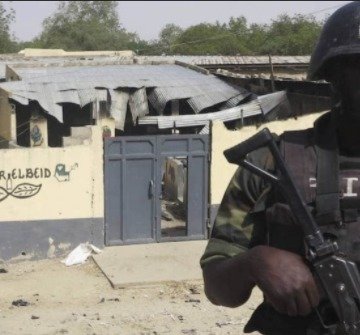- About
- Topics
- Picks
- Audio
- Story
- In-Depth
- Opinion
- News
- Donate
- Signup for our newsletterOur Editors' Best Picks.Send
Read, Debate: Engage.
| located: | Cameroon, Central African Republic, Nigeria |
|---|---|
| editor: | Bob Koigi |
The recent arrest of 10 Cameroon separatists in the Nigerian capital of Abuja is the latest episode of the deadliest internal conflict in the Central Africa nation since independence. Having now lasted fifteen months, the situation is threatened to spill over to West Africa with catastrophic effects.
What started as peaceful protests by lawyers and teachers in the minority Anglophone region – who were opposed to hiring French speaking judges and teachers in their area – has now degenerated into bloodied violence and calls for greater autonomy, federalism and secession, while also birthing armed radical elements alongside it. Already over 100 people have been killed, 1,000 are in detention and more than 40,000 have fled to neighbouring Nigeria, creating a humanitarian crisis on all accounts.
The root cause of the conflict stems from years of marginalisation of the English speaking zones in Cameroon by the French speaking majority and government. Resistance by the minority English speaking communities have the government respond with full force, unleashing the army’s Rapid Intervention Brigade, ordinarily used to tackle Boko Haram while instituting a complete internet shutdown in the Anglophone region. Further still, there is diplomatic tension already in place between Nigeria and Cameroon after the Cameroonian troops crossed into Nigeria in pursuit of rebels without the Nigerian government’s authorisation. The situation is becoming disquietening, particularly as the country is set to hold its election this year.
An unstable Cameroon is dangerous to everyone, and cannot be an option in a region that is battling terror groups, military coups and decades of armed conflicts.
It is crucial that Cameroon President Paul Biya leads the way towards a political solution. Chest thumping and high handedness only serve to agitate protesters and embolden them to further their cause; defeating the pursuit for peace. Regional blocs including Economic Community of West African States (ECOWAS) and Central African Economic and Monetary Community (CEMAC) must make their voices heard and put pressure on the country’s political class to find amicable and faster solutions – ultimately it is in their region’s best interest. The African Union and the United Nations who have been consistent in warning to the potential danger of the escalating violence must now firmly intervene in word and action if stability is to be achieved.
